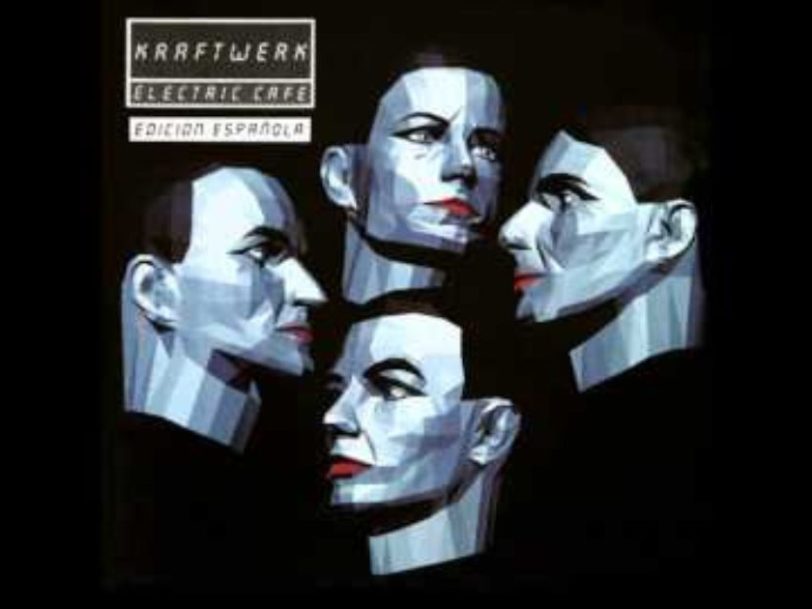The 80s marked a period of change for electronic-music pioneers Kraftwerk. In a decade where the use of synthesisers was exploding in popularity, and dance music subgenres such as techno and house were springing up in Detroit and Chicago, Kraftwerk’s influential legacy could be heard in each new musical innovation. Having taken their longest gap yet between albums, the German four-piece, Ralf Hütter, Florian Schneider, Wolfgang Flür and Karl Bartos, returned in the autumn of 1986 with Electric Café, and album whose working title, “Techno Pop”, proved that, despite a five-year absence, the group understood exactly where electronic music was in the middle of the decade.
Though they took their time in the face of these musical developments, Kraftwerk hadn’t lost their innovative streak: part of the reason for the delay was due to the band’s decision to re-tool their Kling Klang studio, in Düsseldorf, stripping away analogue equipment in favour of installing digital recording technology. Plus, with a new promo video that pioneered the use of all-new computer-generated graphics, Kraftwerk were keen to prove they were just as game-changing as ever.
“That Kraftwerk video clip shaped the MTV era”
Tasked with adapting the famous robotic avatars from Kraftwerk’s The Man-Machine era into CGI for the music video for Electric Café’s lead single, Musique Non Stop, film director Rebecca Allen was at the cutting edge of a field still in its infancy. “Kraftwerk came to me because I was specifically working on human motion, simulation and facial animation,” Allen later recalled. “This was great in the early days, because nobody was doing anything like that.” Then working in the Computer Graphics Laboratory at the New York Institute Of Technology, Allen was part of the team behind Max Headroom, a computer-generated news presenter who would become a regular fixture on MTV.
Thanks to Allen’s creative direction, Musique Non Stop set Kraftwerk up for MTV dominance with a visually spectacular promotional video. One of the best 80s music videos, the clip was every bit as revolutionary as the stop-motion razzle dazzle that characterised Peter Gabriel’s Sledgehammer, and it re-envisioned Kraftwerk as computerised doppelgängers, fully launching them into the digital era. “That Kraftwerk video clip shaped the MTV era,” said Ralf Dörper, keyboardist for German group Propaganda, “and it became the anthem of the music channel.”




